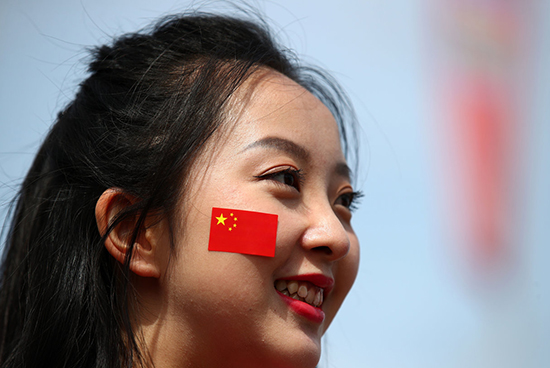
Employees of Meituan-Dianping prepare to make deliveries in Taiyuan, capital of Shanxi Province. ([Photo provided to China Daily)
Group buying and dining behemoth Meituan-Dianping confirmed on Monday that it would raise an undisclosed sum of funds through an initial public offering in Hong Kong to finance its future expansion plans.
Though the company did not reveal the exact size of its planned float, Bloomberg reports indicated that it would raise over $6 billion and target a valuation of roughly $60 billion, a price tag that rivals Xiaomi's goal of as much as $6.1 billion in what would be the world's largest IPO in two years.
The move also makes it the latest Chinese mainland "unicorn"-startups with a valuation in excess of $1 billion-to go public in Hong Kong this year. Xiaomi is looking to raise funds through its Hong Kong float on July 9, but has put off plans for a China Depository Receipts issue on the mainland.
According to industry analysts, the Xiaomi and Meituan-Dianping IPOs could herald the next wave of tech listings and open the floodgates for more unicorn companies to list on mainland bourses.
"The market anticipation for tech unicorns is understandable as there have not been too many big-ticket IPOs recently. Sentiment has largely been cautious and there has not been much room for investors to leverage their holdings," said Shen Meng, director of boutique investment bank Chanson & Co.
Shen said that Xiaomi's plans to defer the CDR issue will not have any long-term impact or determine the course of its HK float.
Xiaomi said in its prospectus that it will offer 2.18 billion shares priced between HK$17 ($2.20) and HK$22, raising up to HK$48 billion in Hong Kong.
Meituan was founded in 2010 and merged with comment-rating platform Dianping in 2015. With over 300 million active users using its platforms and more than 4.4 million merchants listed on it, it has become the country's largest provider of on-demand services spanning food delivery, hotel bookings, travel and entertainment ticketing.
In its prospectus, the company said that it generated 33.9 billion yuan in revenue last year, up 161 percent year-on-year. Despite the revenue, it posted a net loss of 2.85 billion yuan in 2017.
The Beijing-based company said it operated on a philosophy of seizing strategic business opportunities and said it was uncertain when it would turn profitable.
"Investors should not be too worried about the company's continuing losses. The key is whether it can reduce the loss in a reasonable way," said Shen.


















































